Not only talking about the development process of Vietnam's pangasius industry, the memoir of author Nguyen Phuoc Buu Huy provides readers with a perspective on career experiences through each ups and downs in the life of a businessman who was once a prisoner of war.
Prisoner of War tells the story of businessman Nguyen Phuoc Buu Huy (commonly known as Buu Huy) being arrested by Belgian Interpol while attending the European Seafood Fair in Brussels, Kingdom of Belgium.
The underlying cause stems from competition between Vietnamese tra and basa fish businesses and American catfish farming and trading businesses, leading to a trade war between the two sides.
This war has not ended yet and has caused many obstacles and difficulties in expanding the pangasius market in the US.
Why reopen the case after 17 years?
Buu Huy is considered one of the pioneers, contributing to paving the way for basa and tra fish products from unknown native fish species to become important export products of Vietnam.
 |
| The book is published by the Writers Association Publishing House and Alpha Book. (Source: Alpha Books) |
In the context of global economic integration, the fierce competition in the marketplace is no less than on the battlefield. These risks have caused many businesses, entrepreneurs and fish farmers to struggle and go through ups and downs. Many people have gone bankrupt, had to flee from debt, and even been imprisoned because of this catfish.
Among them, Buu Huy is a businessman who suffered bitterness when he was wrongly accused by the US Court of fraudulently naming products, and was then arrested as a "prisoner of war" and detained for 134 days in a Belgian prison.
The memoir details the events leading to the “trade war” that culminated in the US Department of Commerce (US.DOC) imposing anti-dumping duties (CBPG) on pangasius fillet products in early 2003.
Its consequences have continued for the past 20 years (2003-2023). Although anti-dumping tax has now become a "common practice" of protectionism, it continues to be a trade barrier for Vietnamese pangasius businesses.
The memoir also mentions the responsibility of the Vietnamese state to protect citizens when Buu Huy was arrested at the European International Seafood Fair. This was a fierce legal struggle in the context of Vietnam's initial integration into the world economy since the 2000s.
The author said that his uncle (Mr. Ung Tieu), when he was still alive, once advised him not to “dretch the ashes, forget the painful things of the past”. 17 years have passed, he does not want to mention it again, because he wants to let it gradually sink into oblivion.
However, many friends and relatives often ask him about the darkest days of his life in a Belgian prison. They want to know the truth about why he was arrested by Belgian Interpol? About life and activities in Belgian prisons. How did they treat prisoners? Why was he released by the Belgian government ? What was the reaction of the US side at that time? How did the Vietnamese government intervene and protect citizens? What were the material and spiritual damages to his company and family?
He shared: “Some people misunderstood the incident, thinking that I had committed a crime and was therefore ordered to be arrested by the US Court. Indeed, I was forced to fall into prison as if it were my fate. Was it because of my karma? After more than a decade, much of the sadness has subsided, and in my memory, only memories, joy, human affection, family, relatives and friends remain when I look back on my life.”
According to the author, in the process of international integration, competition and fighting in the marketplace are similar to those on the battlefield.
Although there are no guns or bloodshed, the trade war between pangasius and catfish businesses is no less fierce. The Catfish Farmers of America (CFA) has launched continuous attacks to protect their interests.
Citing many reasons, from fish raised in dirty environments, to the exclusive right to the name catfish, to political legal litigation, CFA used the excuse that Vietnam is not a market economy to accuse pangasius businesses of selling below production cost, causing material damage to them.
Ultimately, the US.DOC had to impose unreasonable anti-dumping duties on tra fish products. This led to him being accused of deliberately mislabeling the label to evade taxes and “they asked the Belgian Interpol to take me prisoner,” he said.
At that time, the story was no longer a personal event but attracted the attention of the whole country because it was in the early period of world economic integration.
When the case occurred, domestic and foreign press reported it widely in the context of many important events such as: Vietnam was actively negotiating to join the World Trade Organization (WTO); the Prime Minister's delegation attended the 6th Asia-Europe Meeting (ASEM 6), held in Helsinki, Finland (September 10-11, 2006); and the 14th Asia-Pacific Economic Cooperation Summit (APEC), held for the first time in Hanoi (November 2006), with the participation of many heads of state, including US President George W. Bush.
The author confided: "There are events that create pride, but there are also events that create a deep "mark" in each person's career. Recording those events and answering questions and doubts has urged me to write this memoir."
Author's wish
Through his memoir, author Buu Huy wants to talk about the Vietnamese State's duty to protect citizens. Not covering up wrongdoings of businesses, but being ready to protect citizens when incidents occur abroad.
In particular, the active participation of ministries, branches, VASEP Association and the valuable contributions of relevant people in the legal struggle to reclaim freedom and justice on the basis of respecting international law.
After he returned to Vietnam, on December 15, 2006, the North Florida Court brought the PSI/PTI case to trial. Danny Nguyen, the owner's representative, pleaded guilty to intentional misbranding and was sentenced to 51 months in prison, 3 years of probation, and a fine of $1,139,275.
It was not until five years later, when his lawyers filed a petition with the court, on August 4, 2011, that the North Florida District Court and the US Department of Justice ordered the dismissal of all indictments against him and the AFIEX company, and permanently removed his name from the international Interpol wanted list.
The US Embassy then issued him a visa so he could travel to the US and other countries around the world normally. This means they admitted the mistake in arresting and charging him, as well as helping him regain some faith in the law.
In writing this memoir, author Buu Huy did not want to do anything that would affect the increasingly good diplomatic relations between the US and Vietnam. On the contrary, he was very happy and wanted to foster the achievements that both sides had achieved.
“I always want to completely end the “trade war” that is still lingering between fishing businesses. I wish to create friendly and sustainable cooperation between associations, between American catfish farmers and Vietnamese pangasius farmers,” he shared.
The author hopes that one day in the near future, this “trade war” will come to an end, ending the above-mentioned unreasonable anti-dumping tax to establish friendly and equal cooperation between fish farmers, Vietnamese enterprises, the Vietnam Association of Seafood Exporters and Producers (VASEP), the Vietnam Pangasius Association, the Catfish Farmers Association (CFA) and American seafood enterprises.
There are many events related to the development of Vietnam's pangasius industry over the past two decades, but the book Prisoners of War is compact and easy to read, only nearly 300 pages, divided into 32 chapters and the last chapter.
Talking about the book, writer Nguyen Huy Minh commented: "We and future generations: businessmen, lawyers, diplomats, managers... all need to know the dramatic turn of life through the memoirs of author Nguyen Phuoc Buu Huy."
Ms. Hoang Lan Huong, former Head of the Vietnam News Agency in Belgium and former editor-in-chief of Le Courrier du Vietnam newspaper, said that the book, with its simple yet enthusiastic writing style and full of burning enthusiasm for the profession, has truly inspired and brought pride to even readers unfamiliar with the seafood industry.
Source


![[Photo] General Secretary To Lam meets with General Secretary and President of Laos Thongloun Sisoulith](https://vphoto.vietnam.vn/thumb/1200x675/vietnam/resource/IMAGE/2025/10/25/1761380913135_a1-bnd-4751-1374-7632-jpg.webp)



![[Photo] Prime Minister Pham Minh Chinh receives United Nations Secretary-General Antonio Guterres](https://vphoto.vietnam.vn/thumb/1200x675/vietnam/resource/IMAGE/2025/10/25/1761390212729_dsc-1484-jpg.webp)



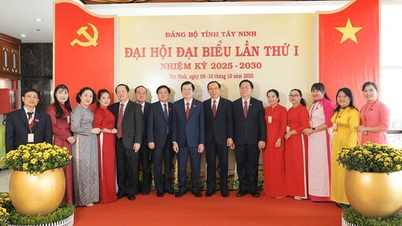

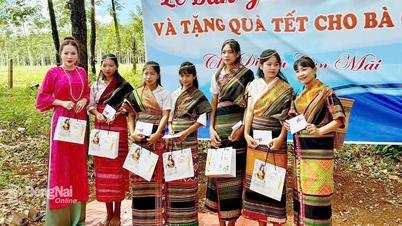

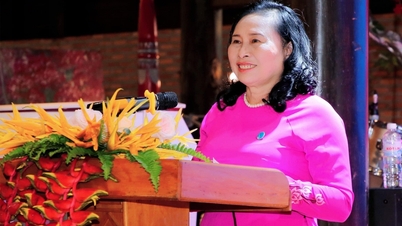

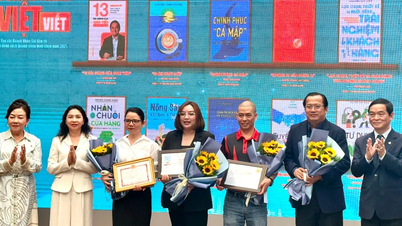

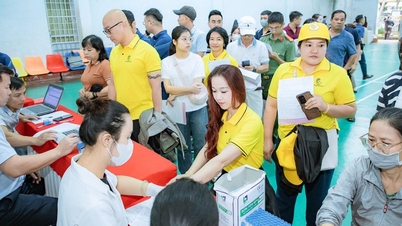
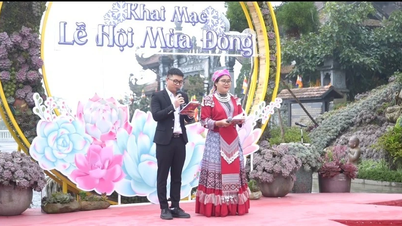



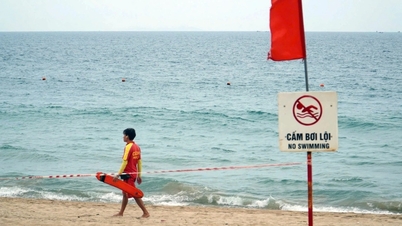

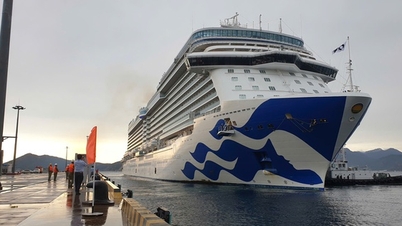

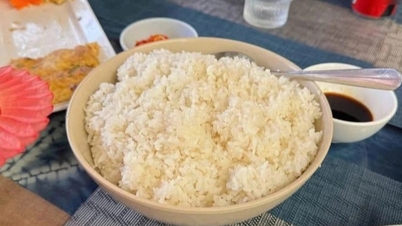






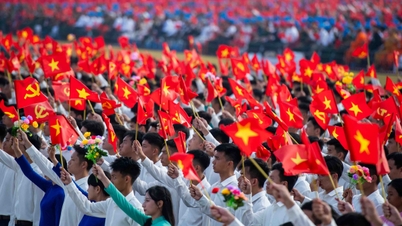
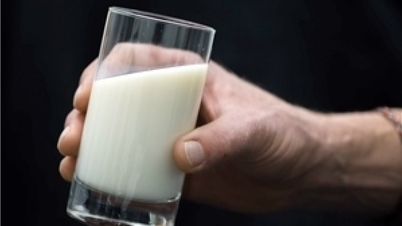
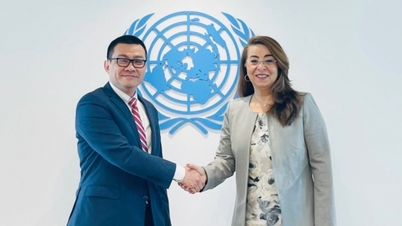

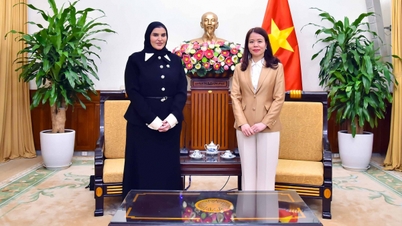

![[Photo] President Luong Cuong receives heads of delegations attending the signing ceremony of the Hanoi Convention](https://vphoto.vietnam.vn/thumb/1200x675/vietnam/resource/IMAGE/2025/10/25/1761377309951_ndo_br_1-7006-jpg.webp)
![[Photo] National Assembly Chairman Tran Thanh Man receives United Nations Secretary-General Antonio Guterres](https://vphoto.vietnam.vn/thumb/1200x675/vietnam/resource/IMAGE/2025/10/25/1761390815792_ctqh-jpg.webp)






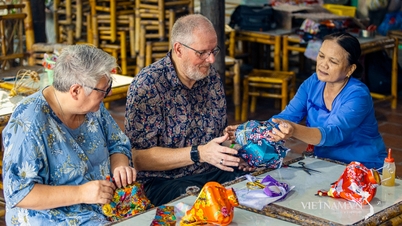
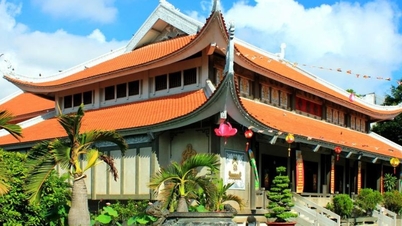

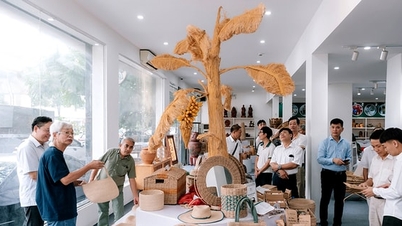

























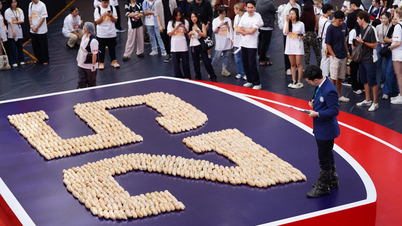
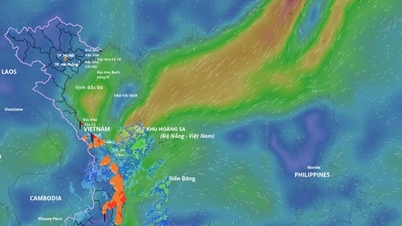


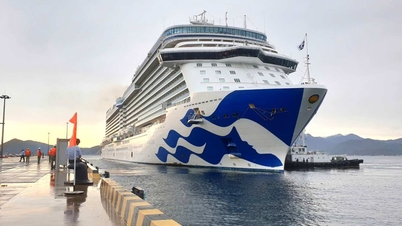
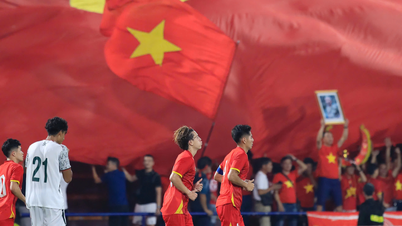


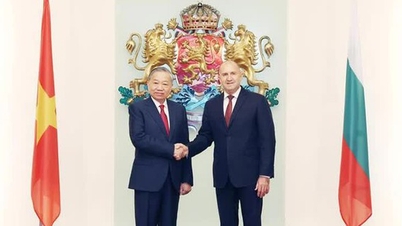

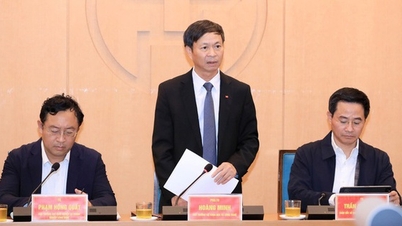
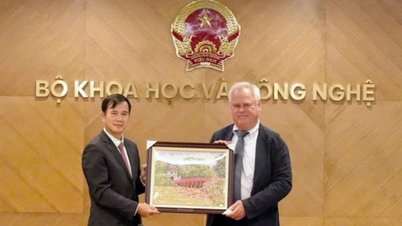
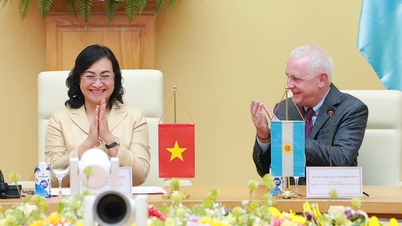

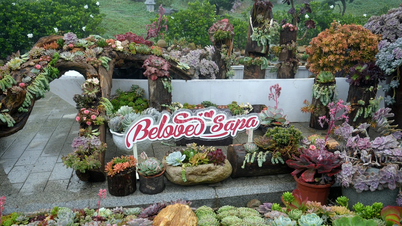


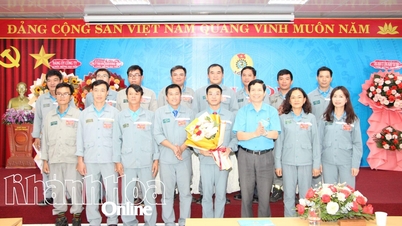




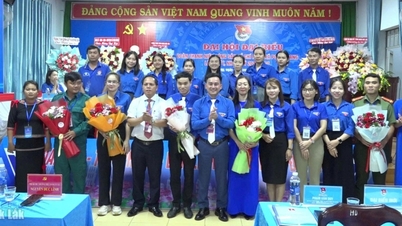











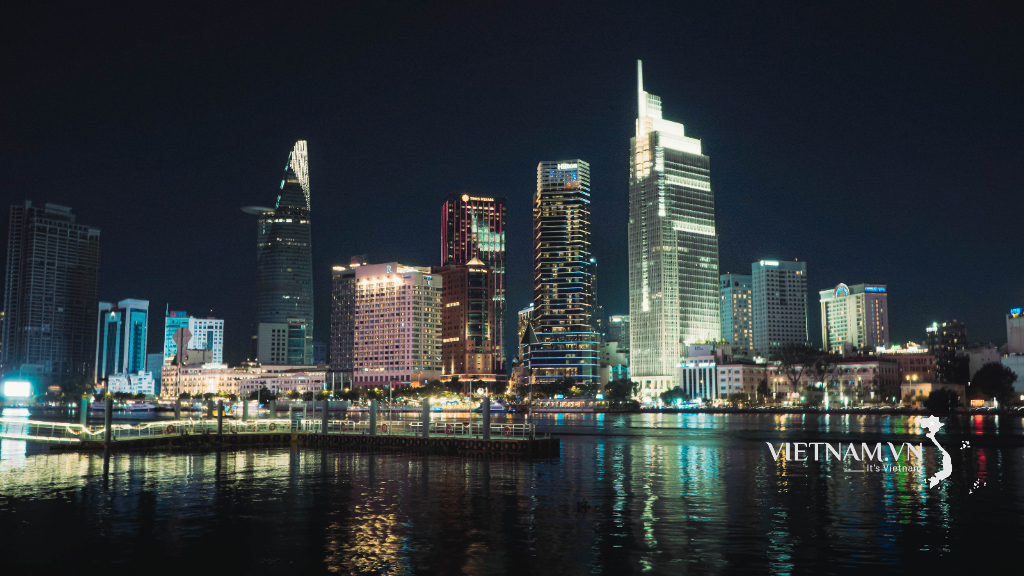
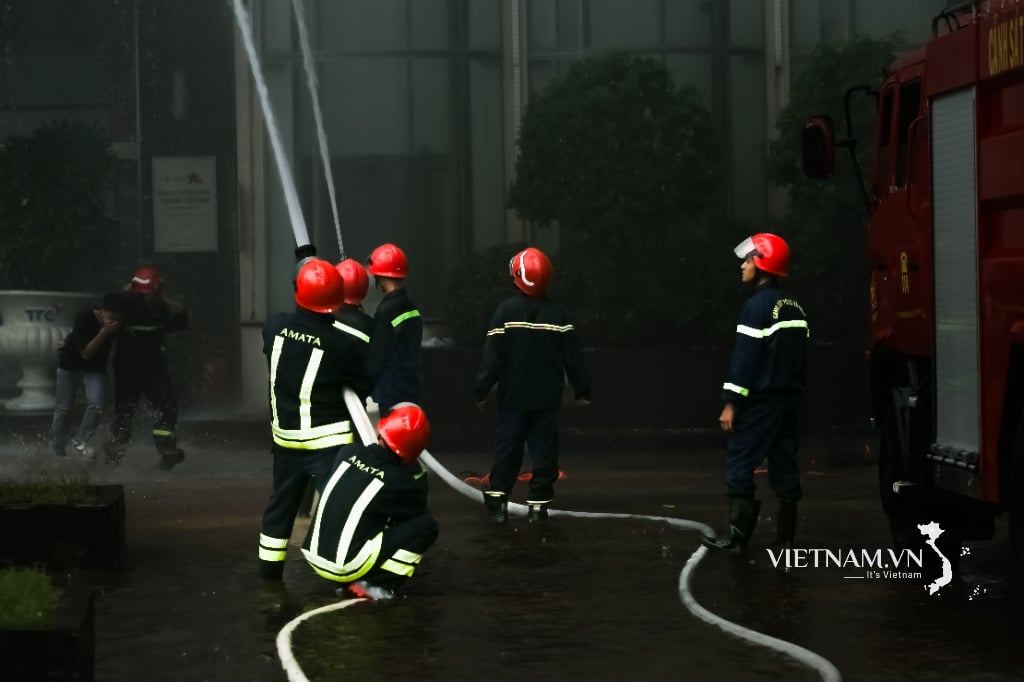

Comment (0)